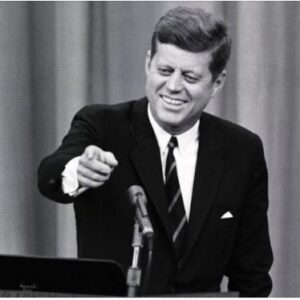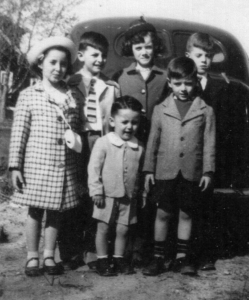I was 14,, sitting on the school bus next to Ormie House, a slightly older neighbor. He was looking at a full-page photo of a tiger in a book titled Danger Is My Business, in which author John D. Craig described (very entertainingly) the adventurous life he had led in the 1920s and 1930s as a very young man. For some reason, Ormie lent me the book, and in it I read of the time in India when Craig met a sadhu, a holy man, who spent an afternoon talking to him.
“You have come a long way,” he said, “but you have a longer way to go. In your last incarnation you were cooped up in a London countinghouse, as a clerk. In this life you will do all the things of which you dreamed then. Before that you had many lives, but this one is more important. That is, it can be. You have a long way yet to go before you reach The Silence.”
I settled myself more comfortably in the grass and asked him what he meant by The Silence. For a while he looked at me meditatively, probably wondering whether I was worth his time. Then he spoke.
He must have talked for a long time, because Miss Naylor said afterward that she spent several hours in the village …. When she found me the sadhu was still talking, and I was lying full length on the grass, drinking it in.
What he told me is to be found in many book: the theory of reincarnation; the teaching that the cosmic consciousness, or God, is composed of all matter, all thought, all soul. From the highest element, the creative, has emanated all forms of substance; earth, water, fire, air, ether–the highest and the lowest–each having varying degrees of vibrations; varying wave lengths of different intensities of the same primary substance. Thus substance goes through a series of creative evolutions, rising from grosser to finer, through the mineral, vegetable, and animal kingdoms to man. When it reaches man, it contains a portion of the finer vibrations, called soul, and is close to the primary essence itself–God.
The soul of man is, then, a divine vibration caught within the body and mind of man.
But man must go through different planes of existence until he becomes conscious of such a divine vibration. Therefore you may compare his life to a cycle. He evolves through different lives until he reaches that state of being…a consciousness of his very essence, called Zat…which means silent, motionless life–the center–the source of all. In that state of Silence we rise above time and space; thought flows in a stream of quiet power, and knowledge of life is complete. Thus, the sadhu pointed out, in this interpretation of life all philosophies are included and explained: pantheism, which makes all nature God; monotheism, which calls for a single personal God; evolution, which teaches that man arose from lesser beings; Christianity, which prescribes a superhuman, or God-man; and all the other isms and schisms which snatch at a fragment of truth and build a structure of unreason about it.
The sadhu had for some time been an emancipated soul, not bound to continue life. But he was engaged in voluntary service on earth, as were, he said, many others.
“I have been in this body now well over a hundred years,” he said. “I have known others who remained in the same body over three hundred years. It is a matter of mind, as you Occidentals say. It is a matter of knowledge, as some others say. To us it is a state of being which has been achieved. The last life before this, when I died–as you call it–for the last time, I was spiritual advisor to Shah Jahan, the builder of the Taj Mahal. I remember that life, of course, as I remember all the others, and as I know yours, from reading the record in your soul. Nowadays you have psychologists who call it your subconscious mind, and try to make you think all those things are remembered from childhood.
…
I was afraid of the sadhu’s philosophy for two reasons: it explained everything, and it solved the problem which had been annoying me. My religious training, such as it had been, and my Scottish Presbyterian blood, revolted against that. The world and the universe should be a mystery, and my personal problems should continue to bother me. But should they?
That night I sat on my bed looking with glazed eyes at the floor….
&&&
When I read this little passage, something within went “Click!” and I instantly knew that this is how things work. That’s the only mention of reincarnation in the entire book — scarcely a shot across the bow, so to speak — yet it helped determine my life, for it helped determine what I believe, and hence what would be important to me, and hence what I would act on. Eventually.
Probably Danger Is My Business was merely the excuse “someone within” used to bring my conscious mind to pay attention to an idea it had heard before, though not recently. From time to time, as years passed, I would get glimpses of what seemed to be past lives. (I have since learned that receiving such glimpses is normal and frequent, but is usually dismissed as “only imagination.”) But it was a long time before I found any effective way to do any exploration. Meanwhile there was live to be lived. To be endured.

